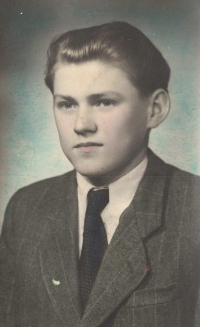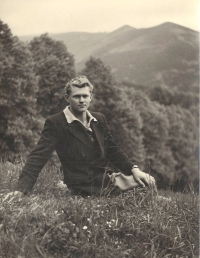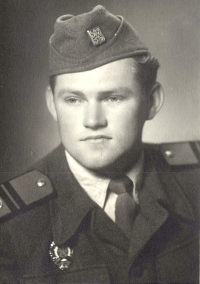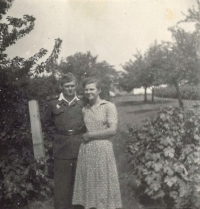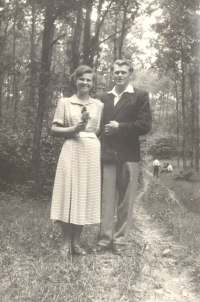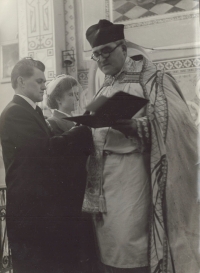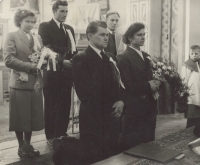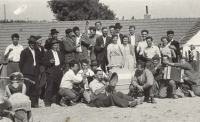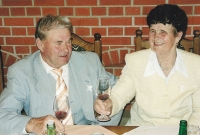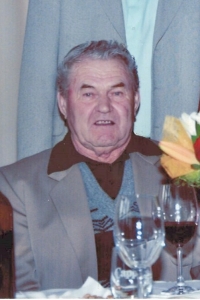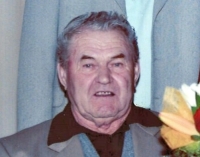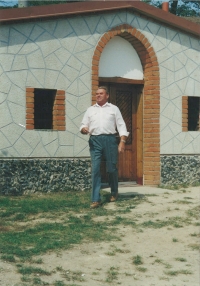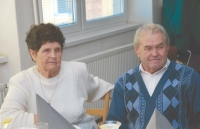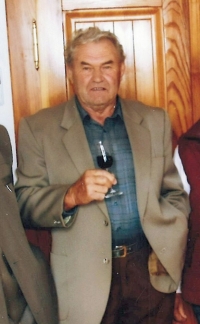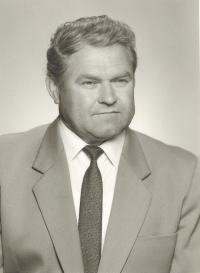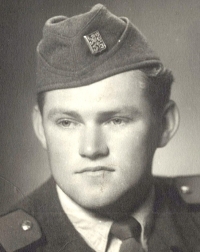"And now it was, I remember, it was Monday and it was lunchtime. Suddenly the alarm. Everything in the cars, the armaments, everything, and now the cars were driven out and to Pilsen. When we drove to the street where the parade used to be, there had been a platform built, a wooden structure as big as a house. When we got there, the firemen were already raking the ground with hooks and what people had set on fire was all burned up. There was a demonstration, it started. There had been a big monument next to it, and it was torn down and its head was broken. And the people, as we were driving there, we were jumping out of the cars, and now we were marching down that one street to that square. And there it was. There were thousands and thousands of people, full square. They started smashing up the shops. We had new guns, rifles, we couldn't do anything with a machine gun. You weren't allowed to shoot into thousands of people, you can't do that, it’s not war. But we had new rifles, we were issued semi-automatic rifles, and they had folding bayonets - and that worked. We were soldier by soldier, close swarm, so nobody could get through. We closed that side and left that side clear, so that those people would go home through the side streets, so they'd have one side all clear. Only the people on the other side couldn't see what was going on there where we were, and the first ones could see it. And they started singing the anthem and calling us motherfuckers and swines and stuff. We soldiers weren't to blame, you have orders and you have to. So we went with the bayonets, bayonets like in the frontline. And marching in, so we'd march, and now the crowd the whole width of the square. And the firemen behind us, they were spraying water on them. That was it, it's got to be cleared out before it gets dark. So, two armoured vehicles came in from the side, these armoured vehicles, these cars like little tanks, and they had machine guns on that turret, so they were already starting to run home down those side streets. We took our helmets off, threw it away, and hurrah, like we conquered Stalingrad."

